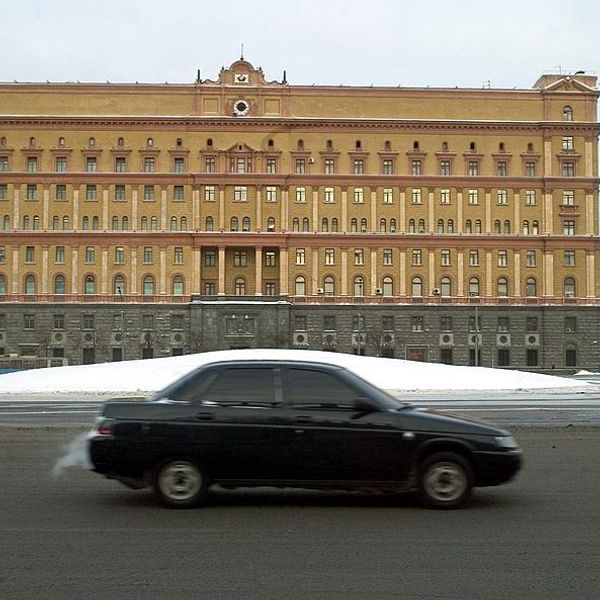OPINION — More than 231 years ago, Alexander Hamilton foresaw the controversy around today’s impeachment inquiry into President Trump when he published Federalist Paper 65 on March 7, 1788. In it, Hamilton wrote that the Constitutionally established, House of Representatives investigative role in the impeachment process “will seldom fail to agitate the passions of the whole community, and to divide it into parties more or less friendly or inimical to the accused.”
Could there be a better description of today’s situation in this country?
Last Thursday, Steve Schmidt, former campaign advisor to Dick Cheney, George W. Bush and John McCain, pointed to Hamilton’s Federalist paper 65 on MSNBC saying Hamilton had written “specifically and directly about the [Donald Trump] type of president, envisioning sometime in the future what we have now in office. So this is a very serious matter. It’s a very grave moment. This will cause even worse division in the country. And it’s hard to imagine we could be more divided.”
Schmidt went on to describe the allegations against Trump, that the President withheld military aid from Ukraine and asked that country’s president to investigate questionable theories about who hacked Democratic Party e-mails in 2016 along with former-Vice President Joe Biden and his son, Hunter, hoping to get dirt on his possible 2020 election opponent.
“If you can do that to the former-Vice President of the United States, that means you can do that to anybody,” Schmidt said.
He explained, “If that’s ok to ask a foreign head-of-state to investigate an American citizen that means it’s ok for the president of the United States to see someone say on television, who doesn’t like the criticism of him, and order the IRS, let’s say, to investigate them or to target that individual with the Department of Justice.”
“The President is a president, not an emperor,” Schmidt said.
There is more in Hamilton’s Federalist Paper writings on impeachment that’s relevant to today’s impeachment inquiry into President Trump’s activities.
Article II, Section 4 of the Constitution says, "The President, Vice President and all civil officers of the United States, shall be removed from office on impeachment for, and conviction of, treason, bribery, or other high crimes and misdemeanors."
In Federalist Paper 65, Hamilton gave his own definition of the elusive meaning of “other high crimes and misdemeanors.”
He described them as “those offenses which proceed from the misconduct of public men, or, in other words, from the abuse or violation of some public trust.” Hamilton then added that these offenses should be “of a nature which may with peculiar propriety be denominated political, as they relate chiefly to injuries done immediately to the society itself.”
Note he was describing “misconduct of public men,” and “abuse or violation of some public trust,” and not specifically of criminal acts, prosecutable under state or federal laws. Hamilton did not ignore the possibility a president could have committed a criminal act.
In Federalist Paper 69 he wrote, “The President of the United States would be liable to be impeached, tried, and, upon conviction of treason, bribery, or other high crimes or misdemeanors, removed from office; and would afterwards be liable to prosecution and punishment in the ordinary course of law.”
Today, it’s worth looking at the most recent impeachment efforts.
Obstruction of Justice was the first article of impeachment the Democratic-controlled, House Judiciary Committee approved in July 1974, in the case against President Nixon. He was accused of “using the powers of his high office, engaged personally and through his close subordinates and agents, in a course of conduct or plan designed to delay, impede, and obstruct the investigation,” in this case the Watergate break-in.
In Nixon’s situation, some cited presidential actions cited 45 years ago echo allegations against Trump that were contained in the Mueller report’s section discussing obstruction of the investigation into Russian interference with the 2016 presidential election. The Nixon obstruction impeachment article included, for example, “endeavoring to cause prospective defendants, and individuals duly tried and convicted, to expect favored treatment and consideration in return for their silence or false testimony, or rewarding individuals for their silence or false testimony.”
Consider sworn testimony by Trump’s former attorney Michael Cohen and allegations of conversations hinting pardons with lawyers for Paul Manafort and Michael Flynn.
Much closer to the Trump impeachment case was Nixon’s third article of impeachment, which found that the president had “interposed the powers of the Presidency against the lawful subpoenas of the House of Representatives, thereby assuming to himself functions and judgments necessary to the exercise of the sole power of impeachment vested by the Constitution in the House of Representatives."
The impeachment article specifically cited that Nixon “failed without lawful cause or excuse to produce papers and things as directed by duly authorized subpoenas.” Sound familiar?
President Clinton also faced an impeachment article related to obstruction of Justice, approved in December 1988, by a Republican-controlled House Judiciary Committee. It concerned obstruction of testimony involving the civil lawsuit filed against him by Paula Jones. However, what Clinton was attempting to cover up was information gathered by Special Prosecutor Kenneth Starr’s grand jury investigation into the President’s affair with Monica Lewinsky.
In Clinton’s impeachment, House Republicans carried on no investigation of their own. The Judiciary Committee used Starr’s report and Starr’s appearance as a witness for the factual foundation of their impeachment articles.
As Rep. Adam Schiff (D-Calif.) has repeatedly announced, his closed-door depositions represent the investigatory phase of the Trump impeachment inquiry into the Ukraine affair, in part because the Trump Justice Department refused to conduct its own investigation, even after it had been referred over to Justice by CIA General Counsel Courtney Simmons Elwood and Inspector General of the Intelligence Community Mike Atkinson.
The upcoming public hearings of Schiff’s House Intelligence Committee can be seen as the equivalent to the Senate Watergate Hearings in 1973, which set the stage for the subsequent Nixon House Judiciary impeachment inquiry. Based on what has been disclosed so far, it looks like eventually Trump may be faced with two and possibly three or more impeachment articles voted out by House Judiciary Committee Democrats. One, for sure, will deal with failure to produce to Congress materials and witnesses sought by authorized subpoenas. Another may relate to abuse of power, based on the telephone conversation with Ukrainian President Volodymyr Zelensky. And a third could involve obstruction of justice, based on the ten possible instances described in the Mueller report.
Read more national security insights, perspectives and analysis in The Cipher Brief.














